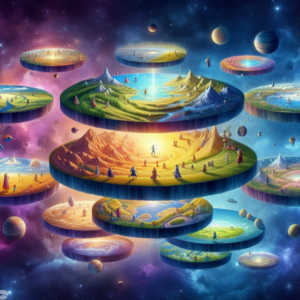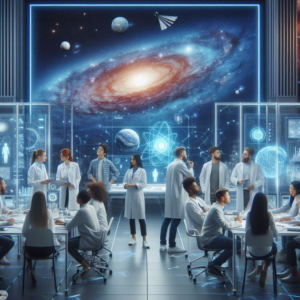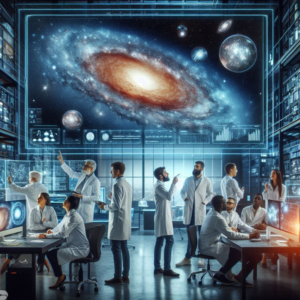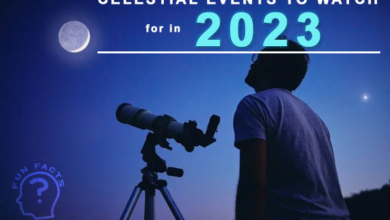The concept of parallel universes, also known as the multiverse, has captivated the imaginations of scientists, philosophers, and science fiction enthusiasts for centuries. The idea that our universe may not be the only one, but rather one of many coexisting realities, opens up a mind-boggling realm of possibilities and challenges our understanding of existence itself.

Delving into the Multiverse: Theories and Possibilities
The notion of parallel universes stems from various scientific theories that attempt to explain the vastness and complexity of the cosmos. Among the most prominent theories are:
-
Many-worlds interpretation of quantum mechanics: This theory suggests that every possible outcome of a quantum event exists in a separate universe. For instance, if you flip a coin, both the heads and tails outcomes materialize in parallel universes.
-
String theory: This theoretical framework proposes that our universe is one of many vibrating strings embedded in a higher-dimensional space. These vibrations give rise to the different particles and forces we observe in our universe, while other universes may have different sets of fundamental laws.
-
Inflationary cosmology: This theory suggests that the universe underwent a rapid expansion phase shortly after the Big Bang, creating an infinite number of bubble universes, each with its own unique properties.
Exploring the Implications of a Multiverse
The existence of parallel universes, if proven true, would have profound implications for our understanding of reality, consciousness, and the ultimate fate of the cosmos. Here are some of the mind-bending possibilities to consider:
-
Infinite possibilities: In a multiverse, every conceivable scenario and outcome could exist in a different universe. This means that there could be parallel universes where you made different choices, pursued different paths, or even lived entirely different lives.
-
Alternate versions of ourselves: In a multiverse, there could be countless versions of you existing in different universes, each with their own unique experiences and perspectives. This raises questions about identity, free will, and the nature of consciousness.
-
The multiverse’s influence on our universe: Some theories suggest that parallel universes may interact with each other in subtle ways, potentially influencing events in our own universe. This opens up the possibility of inter-universal communication or even travel.
Navigating the Challenges of Multiverse Research

Despite the intriguing possibilities, the study of parallel universes remains a highly speculative and challenging endeavor. One of the primary hurdles is the lack of direct observational evidence. By their very nature, parallel universes are thought to be beyond our observable universe, making them difficult to detect or study using current scientific methods.
Another challenge lies in distinguishing between genuine multiverse theories and those that merely attempt to explain away unresolved questions in physics. Scientists must carefully evaluate the validity and predictive power of these theories to ensure they are not simply figments of our imagination.
The Future of Multiverse Exploration
While the existence of parallel universes remains unproven, the pursuit of understanding the multiverse continues to drive scientific inquiry and inspire creative exploration. As our understanding of physics and cosmology deepens, new avenues for investigation may emerge, potentially leading to groundbreaking discoveries that reshape our perception of reality.
Conclusion: A Journey into the Unknown

The concept of parallel universes is a testament to the vastness and mystery of the cosmos. It challenges us to question our assumptions about reality, existence, and the very nature of our universe. While the path to unraveling the mysteries of the multiverse may be long and arduous, the journey itself is filled with wonder, possibility, and the profound realization that our universe may be just one thread in a tapestry of infinite realities.




